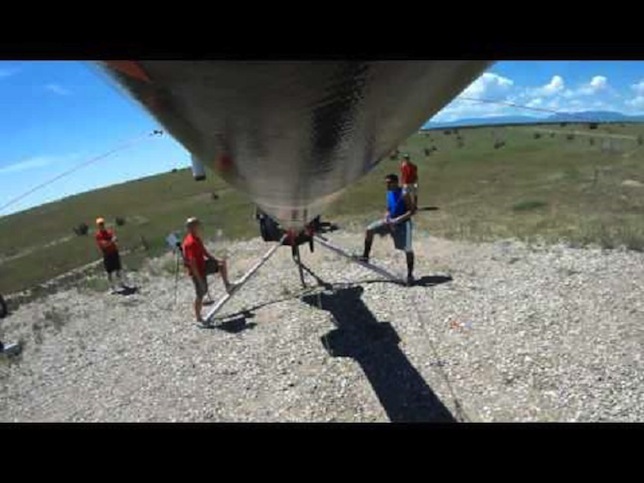Students Set for Launch in NASA Rocket Fair
More than 30 middle school, high school and college
teams of
student scientists will compete April 10 and 11 in the NASA Student Launch event near the Marshall
Space
Flight Center in Huntsville, AL.
The teams will launch rockets they have created to an
altitude
of as much as 1 mile, deploy onboard science experiments they have
prepared and
land safely using a system of recovery parachutes.

The
goal
of the Student Launch Challenge, now in its 15th year, is to
involve students in research-based explorations in which they design,
build and
launch a reusable rocket that can carry a scientific payload to an
altitude of
1 mile. Teams are pre-qualified by completing NASA's Advanced Rocketry
Workshop, and either the Student Launch Challenge, Team America Rocketry
Challenge or 2014 Rockets for Schools competition.
During
NASA's
Advanced Rocketry Workshop, the student designs undergo technical
reviews and follow actual flight safety guidelines, mirroring NASA's own
engineering
design lifecycle and safety protocols.
Tammy Rowan, manager of the
Marshall Space
Flight Center Academic Affairs Office, said, "Each team must meet
rigorous
standards and review processes, just like those applied in the NASA
workplace."
College teams will participate in two divisions.
Teams in the
Maxi-Mars Ascent Vehicle division will launch their rockets Friday,
April 10,
with robotic systems that have fairly stringent autonomy requirements to
meet.
Those teams will compete for $50,000 in prize money.
Other college teams will participate in the Mini-Mars
Ascent
Vehicle division, also with robotic systems but less stringent
requirements, Saturday,
April 11. High school and middle school student teams will launch their
rockets
on Saturday as well.
The Maxi- and Mini-MAV competitions require the
student teams
to load simulated Mars soil samples into their rockets, launch them to
3,000
feet, eject and return the soil samples to earth. The high school and
middle
school teams have designed scientific or engineering payloads that will
be
flown to altitudes of 1 mile.
A Rocket Fair will be held Thursday, April 9, at the
space
flight center during which teams will give technical presentations to
NASA
engineers and get feedback on them. An awards banquet will be held April
10 at the
United States Space & Rocket Center in Huntsville.
About the Author
Michael Hart is a Los Angeles-based freelance writer and the former executive editor of THE Journal.